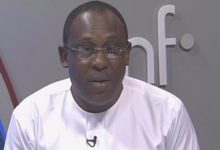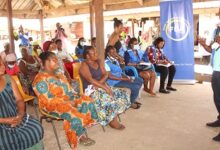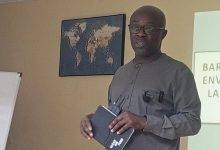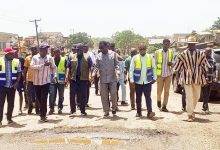PThe Special Advisor to the President on the Sustainable Development Goals (SDGs), Dr Eugene Owusu, has called for private sector support for the implementation of the SDGs to help reduce poverty and promote inclusive growth of the economy.
According to the Special Advisor, government alone could not finance the SDGs, since the resources to finance them were enormous and, therefore, private sector support would be needed to implement the global goals.
Dr Owusu, who made the call during a panel discussion at the Star Ghana Foundation and Civil Society Platform Ghana on the SDGs in Accra on Thursday on the theme, “Ghana’s Journey to the SDGs in a Beyond Aid Context,” said unlike the Millennium Development Goals, MDGs which receive huge donor support for implementation, donor support for the SDGs was dwindling.
That, he said, would require huge domestic resource mobilisation to finance the project, and programmes under the SDGs.
Ghana in 2019 adopted the SDGs, which is a set of 17 global goals aimed at, among other things, addressing poverty, hunger, gender inequality, promoting quality education, access to potable water and sanitation and promoting decent and economic growth.
Dr Owusu said there was a clear nexus between the SDGs and the ‘Ghana Beyond Aid’ agenda of the government, saying both initiatives were aimed at transforming the economy, addressing poverty and enhancing rapid economic development.
He also said both initiatives required leveraging innovation, leaving no one behind and unleashing the potential of all the citizens, especially women for inclusive growth.
The co-Chair of the CSO Platform on the SDGs and Executive Director of the Ghana Anti Corruption Coalition, Beauty Emefa Nartey, for her part, pledged the commitment of CSO to play leading advocacy role in the implementation of the SDGs, and commended the government for incorporating the SDGs in the 2018 budget, but expressed concern that financial resources for the SDGs were not properly aligned with the budget.
The Country Director for the Department of International Development, Philip Smith, said the development partners were ready to provide technical support and expertise to raise domestic resources to finance the SDGs, and called on the government to develop a policy paper outlining the vision of the country on the two initiatives.
The Economic Specialist at the United Nations Development Programme, Kordzo Sedegah, who represented the UNDP Country Director, Radhikal Lal, said poor public financial management, lack of access to public services to all the citizens, gender inequality, the winner-takes-all syndrome, were exacerbating poverty in the country.
Particularly, on gender inequality, he said the government was “paying lip service to” gender equality issues and called for an affirmative action on the allocation of the country’s resources.
Special Advisor at the Ministry of Finance, Dr Yaw Ansu, who gave some perspectives on the Ghana Beyond Aid, said it was not a rejection of aid from developing partners; rather, it was aimed at mobilising resources locally, and not depending on donor partners for funds, to finance the country’s developmental projects and programmes.
He said Ghana beyond Aid would require fiscal discipline and the prudent management and use of the country’s financial resources, disclosing that the committee set up for the implementation of the SDGs, had completed their report and submitted to cabinet for approval.
The Chair of the Star Ghana Foundation Governing Council, Dr Esther Ofei-Aboagye, said the programme was to create opportunity to discuss the implementation and financing mechanisms of the SDGs.
By Kingsley Asare




